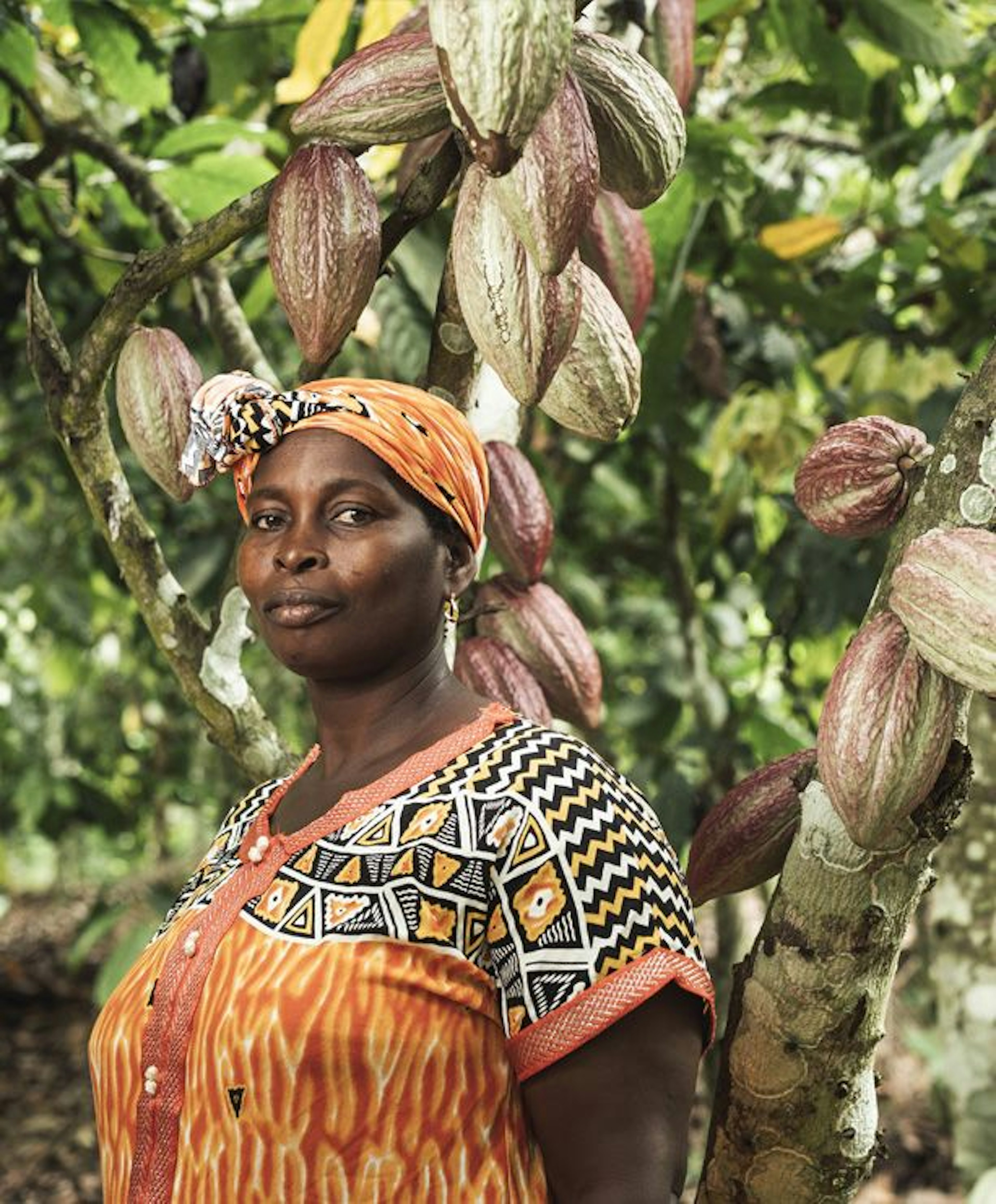Cocoa

Overview
It is estimated that 5-6 million smallholder households produce 90 % of the world’s cocoa. Some 50 million people worldwide are dependent on the cocoa supply chain for their income or employment.
The cocoa supply chain is a typical hourglass shaped supply chain with a large farmer base, only a few exporters and processors, and millions of consumers. Just nine traders and processors handle 75 % of the world’s cocoa trade and have a large influence on cocoa prices and the sustainability of the industry.
Cocoa farming is often labour-intensive and heavily reliant on hand labour with low financial rewards.
The salient issues in the cocoa sector (in the order of saliency):
- Living income & wage
In Côte d’Ivoire, a typical male-headed cocoa farmer household is estimated to earn just 1/3 of a living income. Sharecroppers and farm workers earn still less.
- Child rights
In Ghana and Côte d’Ivoire, children constitute a third of the total workforce in cocoa production: Some 1.56 million children – or 45% of the children living in the area – are engaged in child labour.
- Climate change & Deforestation
Globally, an estimated 70% of cocoa is grown in agroforestry systems, which can support reforestation. But full sun production threatens several tropical rainforests, from Amazon to West Africa and Southeast Asia.
- Health
Major health concerns in cocoa production include injuries, exposure to pesticides and fertilizers, malnutrition, and poor access to health centres.
- Gender equity
Women cocoa farmers are disadvantaged in accessing credit, training, extension services, leadership positions at farmer organisations and cocoa labour groups. As workers, they earn less than men.
- More information on risks in cocoa

Root causes
Unequal value distribution: Cocoa farmers have little bargaining power. Brands are retailers are estimated to capture a whopping 90% of the value in cocoa supply chains, while just 7.5% accrues to bean exporters, smallholder farmers and workers.
Poverty: Poverty contributes to almost every challenge facing the cocoa sector. From child labor and deforestation to malnutrition and gender inequality, these challenges will be impossible to address if farm households continue to live in poverty.
Dominance of monoculture production: In full sun cocoa production, intensive use of agrochemicals causes health risks, climate impact and biodiversity loss on cocoa farms. Organic and agroecological production sidestep these problems.
Climate change: Cocoa is a highly drought sensitive crop. Yields are reduced and whole production areas become unsuitable for cocoa, as tempetures rise and droughts, tropical storms and hurricanes become more frequent and intense.
Background data on cocoa (*Global Volume / **Fairtrade Volume)
Largest producer countries*
- Côte d’Ivoire (40%)
- Ghana (20%)
- Indonesia (12%)
- Ecuador (6%)
- Cameroon (5%)
- Others (16%)
Data from 2022. Source: FAO, 2024.
Fairtrade certified producer organisations**
Data from 2022. Updated in March 2024.
Fairtrade certifiable production**
metric tonnes in 2022. Updated in March 2024.
Farmers in Fairtrade organizations**
Data from 2022. Updated in March 2024.

Stay updated
Partnering for change
Companies can be part of the solution by identifying and addressing the most serious risks and root causes in collaboration with farmers, workers and other affected people. Sign up to receive updates as we add new information to this Map, or to hear how Fairtrade can support your corporate sustainability due diligence.
Map View